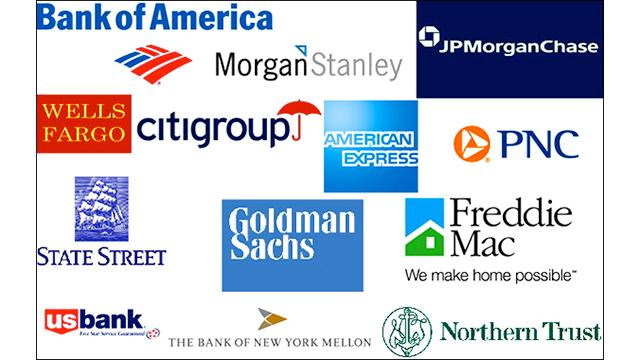
British banks that fail to shield their day-to-day banking from risky investment activities could be broken up, finance minister George Osborne said on Monday, bowing to political pressure to come down harder on reckless lenders.
European countries are retooling their financial systems to prevent a repeat of the 2008 financial crash, trying to strike a balance between popular calls for banks to be reined in and warnings that too tight a leash will choke off recovery.
With Britain's banks buffeted by scandal and part-nationalized Royal Bank of Scotland set to be fined up to 500 million pounds this week for interest rate rigging, Osborne decided to "electrify" the ring-fence around banks' core retail activities with the threat of break-up.
"Our country has paid a higher price than any other major economy for what went so badly wrong in our banking system. The anger people feel is very real," Osborne said in a speech ahead of the publication of the banking reform legislation.
"Let's turn that anger from a force of destruction into a force for change," he said, speaking at the offices of U.S. bank JP Morgan in Bournemouth, southern England.
London's structural reforms go further than France and Germany, which, like the United States, are only demanding that banks separate out their proprietary trading, where they invest the banks' own funds, from the rest of their businesses.
Germany is however considering a new law that would see executives jailed for up to five years if found guilty of reckless behavior that jeopardizes their bank, a move described by a senior government source in Berlin as a signal to Europe, which is seen as not moving fast enough on the issue.
Osborne said Britain could ban directors of failed banks from working in the industry.
Flick the Switch
In the absence of international agreement, national regulators are increasingly pursing their own banking rules, to the dismay of industry insiders.
"We should not create unnecessary obstacles to pan-European rules with a zig-zag approach. A crisis does not stop at the national border. We need a coordinated approach in this area," said Michael Kemmer, managing director of the German banking association.
All the major British banks, including Barclays, HSBC and RBS, will be affected by the UK legislation, and the industry has warned it will put them at a disadvantage against continental rivals such as Deutsche Bank and BNP Paribas.
"This will create uncertainty for investors, making it more difficult for banks to raise capital, which will ultimately mean that banks will have less money to lend to businesses," the British Bankers' Association said in a statement.
But a source close to one of Britain's biggest lenders was more sanguine, saying that with banks already under intense scrutiny, Osborne's decision was a longer term move designed to prevent banks letting standards drop when attention is less focused on the industry.
Fitch ratings agency said the legislation could improve the credit profile of Britain's retail banks.
Under the new rules, the Bank of England will monitor whether banks' investment banking arms, which trade complex securities, are endangering their retail operations.
If the central bank finds a breach, the government will decide whether to flick the switch on the electric fence, forcing the bank to sell one of the two arms.
"Banks require discouragement from gaming the rules. They will always try to do so unless strong disincentives are put in place," said Andrew Tyrie, the chairman of the parliamentary commission that had demanded the break-up threat.
Britain's finance ministry confirmed it would stick to rules on limits to a bank's leverage that have been set at the global level. Leverage will be capped at 33 times a bank's capital, weaker than an original proposal for a maximum of 25 times.
In December, a cross-party group of lawmakers reviewing the plans said it was "not persuaded by the government's relaxation" of the leverage rule and added that the Bank of England should set the leverage cap.
Enormous Public Anger
RBS is expected to be fined this week for its role in a global interest-rate-fixing scandal, and Osborne repeated his call for the settlement with U.S. and UK regulators to be paid out of bankers' bonuses, saying it would cause "enormous public anger" if the taxpayer footed the bill.
The UK has spent over $100 billion propping up its over-leveraged banking system, much of it poured into RBS.
Asked whether there should be resignations at RBS as a result of the bank's imminent fine, Osborne said it was "quite well known that RBS are thinking about changes" amongst the investment bank's senior management.
"It is right that those who are responsible - not just those who are directly responsible, but also those who were dong the supervising - must also bear a level of responsibility," he said.
RBS is expected to part company with the head of its investment bank, John Hourican, when the settlement is announced later this week.
3 WAYS TO SHOW YOUR SUPPORT
- Log in to post comments











